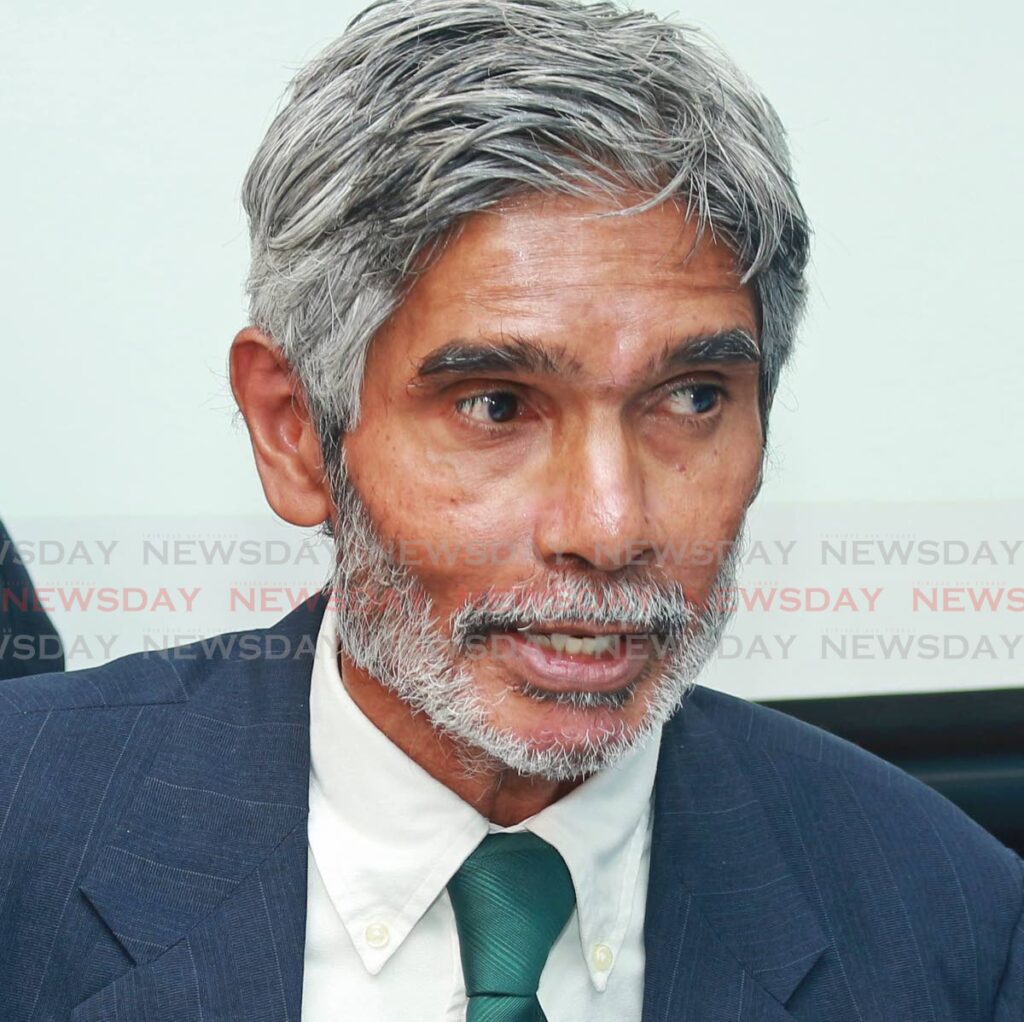Overcoming flooding, landslides, storms

WAYNE KUBLALSINGH
Opportunity for an altered economy
THE FOUR certainties of extreme weather events are temperature increase, melting icecaps, sea rise and heavy precipitation. A significant part of the land mass of Trinidad, situated at the mouth of the Orinoco Delta, comprises flat land, swamp and wetland formations: the Caroni and Naparima Plains and the Caroni, Nariva and North and South Oropouche swamps.
What we call the Northern Range is the northeastern Atlantic extension of the Andean Range. Wind passing over a warmer, fuller Atlantic picks up megatons of heat energy, transforming to storms, heavy precipitation.
These circumstances mean extreme precipitation, flooding, landslides, liquid soil. And social, economic and infrastructural costs. This phenomenon cannot be stopped. However, it may be countered and overcome by an altered economy.
Constituency Government
For TT, no mitigation or transition to a “low-carbon” or “green” economy would be effective without government reformation. Mitigation may not be effectively managed from Port of Spain. Our regional corporations are ill-equipped for effective leadership in matters of extreme weather events, accelerating crime and economic decline in rural Trinidad.
The nation must move with dispatch to instal 41 constituency chiefs, constituency executives and polling division captains for hands-on, direct administration. Each provided with oversight and accountability support from a council. Live, direct, on the ground and proactive leadership is requisite.
Infrastructural Projects
Hydrology before hydraulics. Hydrology refers to the behaviour of water in its natural and artificial habitats. Hydraulics refers to the artificial systems to manage hydrology events.
A hydrological mapping of TT is a necessary precondition for planning infrastructural projects, such as that envisioned in the State’s plan for a national transportation proposal, which was recently disclosed by the Minister of Works and Transport at a select committee meeting of Parliament.
Copious retention dams must be built on the Caroni and Naparima Plains to capture sheet flow across the plains. They must be linked to canals and irrigation systems to provide water for communities, industries and farmers in the less wet season.
Small catchments or ponds may be built in the foothills of the Northern and Central Ranges to capture water even before it descends into populated areas, where densely-packed housing settlements, paved areas, concreted surfaces, malls and industrial infrastructure limit percolation.
Mangrove afforestation is requisite. Mangrove absorbs the brunt of extreme tidal shocks. They provide migration pathways for marine and riverine species, species diversity and hatcheries. Such afforestation, pursued methodically and persistently, over a number of years, will boost the oyster and fisheries economy.
A horticultural revolution constitutes a large-scale tree-planting campaign by constituency citizens, constituency chiefs and their polling division captains in order to:
(a) stabilise slopes and soils generally, (b) absorb water from the soil, (c) encourage a change in consumption habits, from packed and processed drinks to local fruits, (d) expand fertilisation by bats, bees, butterflies, birds to enhance afforestation, (e) produce hardwoods and specialty lumber for affordable housing and small boats and other craft markets.
A small boat and craft market must be built. Pirogues, rafts, punts, barges, canoes, kayaks. This must be allied with standard operating procedures for rescue, recovery, shelter, emergency drills and transport at the constituency level. A new economy must evolve to meet the evolving climate circumstances.
Shifting the energy equation
Global warming and climate change affords us the rare opportunity to shift or see-saw our energy equation. To move, as the “see” of fossil fuels goes downwards, the “saw” of renewable systems, technologies and products upwards. Not just to build a “renewables” or “green” or “sustainable” or “low-carbon” economy, but the first full-fledged low-cost economy on the planet.
That is an economy which obeys the Einsteinian principle, E=mc2. Infinitely miniscule particles may produce astounding amounts of energy. Building an economy based on a socio-economic and cultural shift – taking little or nothing and building something.
With the democratisation of the energy (T&TEC and NGC) and the water (WASA) through legislation, free supply source resources, sunlight, wind and water may be harnessed with ever improving photonic (solar cell, battery storage, transmission, station) and protonic (computers, broadband, artificial intelligence).
To reduce economic costs of living and improve incomes for citizens. Key cost-of-living inputs may be reduced significantly: water, electricity, fuels/public transport, land, food, housing and money. The following are five such markets:
1. The ASH, affordable, sustainable housing market. This involves a project to build a model home loaded with optimum photonic (solar) and protonic (computer) energy. Materials, water, electricity, food, broadband, waste and other technologies.
2. The market for recycling and waste-management. Constituency-based hubs, depots, for the collection, sorting and dissemination to manufactory, market or port.
3. The market for renewable technologies (solar cells, batteries, turbines, cables, etc) manufacture, repair installations as lucrative as the current combustion-engine economy.
4. The market for electric vehicles, or vehicles using clean fuels, methanol, hydrogen, ethanol, etc.
5. The materials market. This market would trade in soil-based or waste-based (plastic lumber) or forest lumber.
Currently TT consumes approximately 8,000 gigawatt hours of energy per year. Nearly all of this energy derives from fossil fuel. Norway is 99 per cent renewables-based, New Zealand 81 per cent, Brazil 78 per cent, Colombia 75 per cent.
Our first target must be to achieve not only a 50 per cent ratio, but to establish the foundations, legislatively, politically and technologically, for a full-fledged, low-cost economy on the Einsteinian principle of making something great from little or nothing.


Comments
"Overcoming flooding, landslides, storms"